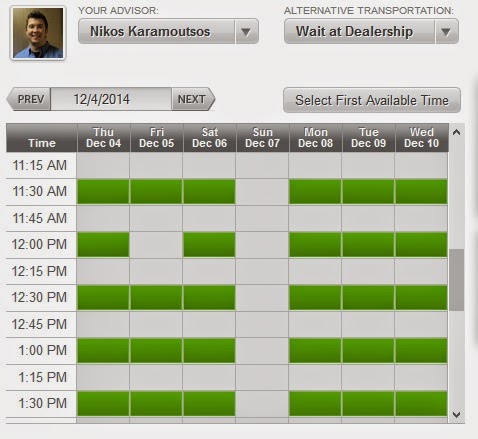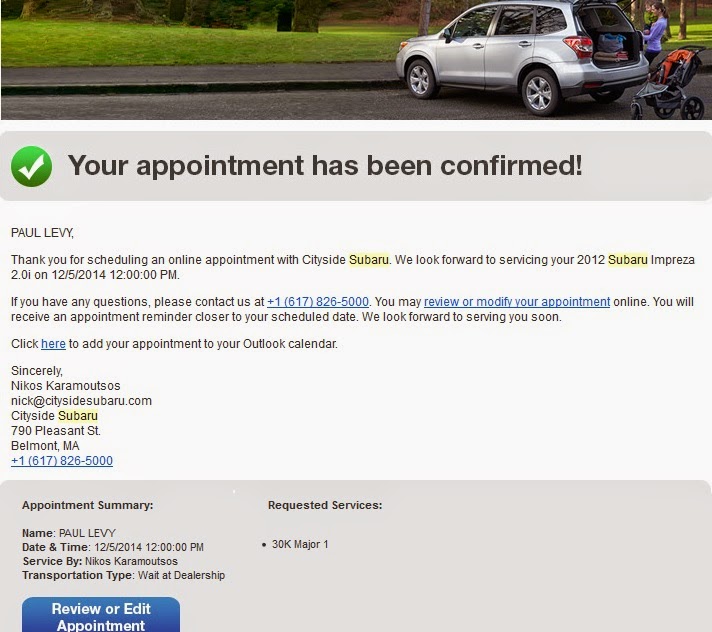I recently had to reschedule a routine exam with my hospital-based primary care doctor and so decided to use the supposed rescheduling functionality on the patient portal to carry out this task.
The appointment was scheduled for September 23, and I sent in a cancellation request on September 14, along with a note suggesting possible substitute dates two weeks hence.
There was no reply. I later learned that the message was not opened until October 15: "Message Date/Time: 10/15/2014 11:23 AM: We are working on your request. We have received your request. We are working on it."
A minute later, a second reply came back: "Sorry taking so long to get back to you but your appt is on Tuesday 1/27/15 at 10:40am."
I replied that I would be out of town on that date, adding: "Instead of just choosing a date, why don't you offer some possible openings, and I'll let you know which would work?"
The reply: "The reason why I couldn't just offer some possible openings is because appts go very fast. You can pick which days and times works best for you and we will try our best to fit you in on those slots. Pls email me back and let me know what works for you and I will schedule it."
By this point, I knew things would be hopeless if we continued writing each other:
Now, compare that with my experience setting up a routine exam for my Subaru. I go to the website and a full calendar for several months is presented, showing where there are openings for my particular kind of appointment.
I can even tell them if I want to wait for the work to be done, borrow a car, or get a ride somewhere. I flip through the calendar, make my choice, and a confirmation arrives instantaneously, along with a button to push if I need to make a change.
I know there are subtleties that sometimes require personal attention when making medical appointments, but many appointments require no human intervention from the doctor's office. It is frustrating to think that it is easier for me to schedule a routine car service event than a routine physical exam.
It is also a waste of human resources in a cost-constrained health care environment. For all I know, my doctor was left with an unfilled appointment back in September. Perhaps another patient with an urgent need could have seen the doctor during that block of time. It makes me think that some hospitals have a long way to go before they get out of the horse and buggy era.
Paul Levy is the former President and CEO of Beth Israel Deaconess Medical Center in Boston and a patient-driven care advocate. He blogs at Not Running a Hospital.

